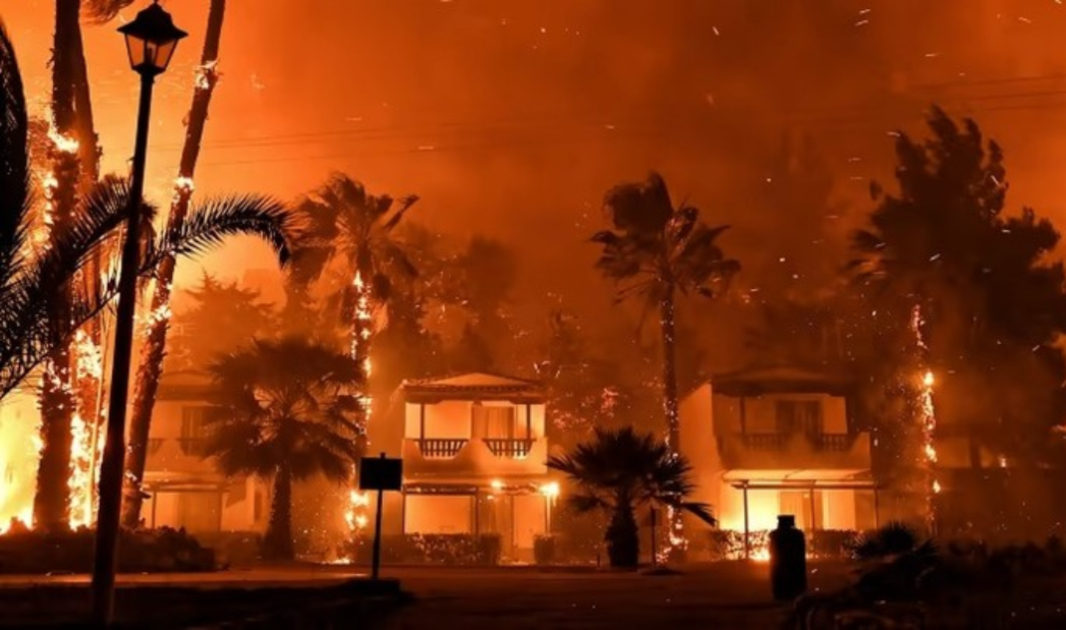At this time of year most of us in Malta look forward to glorious sunshine and bright blue skies. Being able to enjoy the warm summer weather with friends and family, and spending time outdoors is popular with most people.
However very high temperatures can have significant health consequences for some. When the heat rises, it can lead to increased illness and deaths.
Throughout June to September each year, countries across Europe see thousands of excess deaths during periods of hot weather.
Although this is a short period, there are real health implications for many people and unfortunately this shows that the saying ‘a bit of hot weather never hurt anyone’ simply isn’t true.
Most of Europe, stretching from Gibraltar to Scotland, is currently experiencing an extended period of extreme heat, with record-breaking temperatures in Portugal, Spain, France, Wales and England. Therefore, we need to be prepared for the real possibility of severe health impacts and take the needed steps to try and avoid them.
It is important we all take sensible precautions to avoid becoming unwell and to enjoy the hot weather safely. If you have vulnerable family, friends and neighbours, make sure they are aware of how they can keep themselves protected from the hot weather. It is possible people can experience heat exhaustion and in very serious situations it can become heat stroke.

Who is vulnerable?
While everybody is at risk from the health consequences of heat, there are certain factors that increase an individual’s risk during a heatwave. These include:
- older age: especially those over 75 years old, or those living on their own and who are socially isolated, or those living in a care home
- chronic and severe illness: including heart or lung conditions, diabetes, renal insufficiency, Parkinson’s disease or severe mental illness
- inability to adapt behaviour to keep cool: babies and the very young, having a disability, being bed bound, having Alzheimer’s disease
- environmental factors and overexposure: living in a top floor flat, being homeless, activities or jobs that are in hot places or outdoors and include high levels of physical exertion
What can we do to stay safe?
There are a few very simple things we can all to do stay safe when we experience very high temperatures.
- look out for those who may struggle to keep themselves cool and hydrated – older people, those with underlying conditions and those who live alone are particularly at risk
- stay cool indoors by closing curtains on rooms that face the sun – and remember that it may be cooler outdoors than indoors
- drink plenty of fluids and avoid excess alcohol
- never leave anyone in a closed, parked vehicle, especially infants, young children or animals
- check that fridges, freezers and fans are working properly
- try to keep out of the sun between 11am to 3pm, when the UV rays are strongest
- walk in the shade, apply sunscreen and wear a wide-brimmed hat, if you have to go out in the heat
- avoid physical exertion in the hottest parts of the day
- make sure you take water with you if you are travelling
- take care and make sure to follow local safety advice if you are going into the water to cool down
- check medicines can be stored according to the instructions on the packaging

How science is helping
The impacts of climate change are already being seen around the world. The Earth is warming, rainfall patterns are changing, and sea levels are rising, increasing the risk of heatwaves, floods, droughts, wildfires and other natural hazards.
These changes pose one of the greatest health security threats we face, potentially impacting the air we breathe, the quality and availability of our food and water, the risk of infectious diseases and wider impacts on our mental health and wellbeing.
Though climate change is often referred to as a global problem, no country or community is immune to its effects. At Evolve, we believe that it is clear that further and faster action is needed to understand and mitigate the risks that climate change poses to our health and health systems, and science has a major role to play in this global effort.
Translating climate science into action
Scientists studying the health effects of climate change provide early warning and response to extreme weather events, quantify the health impacts of air pollution and monitor the risks posed by changes in the distribution of vector-borne disease or disruptions within the food system.
Working in multi-disciplinary teams also means experts can draw on expertise in areas like global health, emergency preparedness, resilience and response, data and analytics. Much of the work is carried out in partnership, for instance the sixth assessment report of the International Panel on Climate Change which provides evidence for policy makers all over the world.
Scientists also recently led a global science partnership for the United Nations Office for Disaster Risk Reduction Hazard Definition and Classification Review and its Hazard Information Profiles Supplement.
These major scientific contributions have built shared understanding of hazards to inform experts working in disaster risk reduction, emergency management, climate change and sustainable development.
You might also be interested in
Discover all of our latest news and insights from Evolve
Evolve is your trusted science partner
At Evolve, we have specific sector knowledge and tailor scientific solutions to your requirements by selecting and adapting our service offering, which includes:
- Facility design, laboratory supplies and lab furniture layout
- Expertise to help you make quick and informed decisions for all your clinical, scientific or analytical needs
- We can provide you with a comprehensive maintenance and support service
- We offer training in a number of areas of interest to the scientific community
Our proactive, consultative approach is underpinned by the expertise of our team of dedicated professionals, ensuring that you’ll get personal support from one of our experts.
If you need to speak with someone from Evolve, please visit our Support Centre page.


